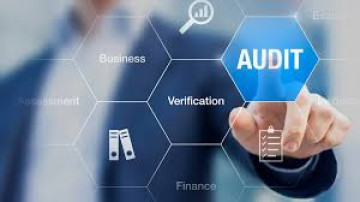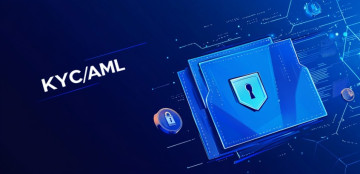Order an audit of compliance for Electronic signatures and transactions in the US
Electronic signatures and online transactions are the heart of modern business in the US: fast, convenient, and scalable. However, behind this speed lie complex state and federal legal requirements—and one mistake can ruin a deal. A legal compliance audit checks your signatures, processes, and services to ensure everything works like clockwork and withstands any scrutiny. Businesses must also consider the electronic signature act, which sets the foundation for lawful use in the United States. In other words: work quickly—but with confidence.
What does the service include?
The attorney examines your electronic document flow under a microscope:
- verifies whether electronic signatures comply with federal laws such as ESIGN Act and UETA, along with state-specific rules. This is critical for proper electronic signature compliance, especially for companies that manage contracts daily;
- analyzes transactions—from banking operations to online payments in marketplaces, ensuring digital signature compliance so that your operations meet legal and technical requirements;
- iIdentifies weak points that could lead to disputes and advises on electronic signature terms and conditions to ensure clarity and enforceability;
- rRecommends platforms and services for secure signing that support e signature compliance, even for cross-border transactions;
- prepares a legal opinion understandable not only to lawyers but also to business ownersPrepares a legal opinion understandable not only to lawyers but also to business owners, covering details of e-signature compliance under U.S. law.
This is not a formal "checkmark" but a detailed analysis that helps you sleep peacefully, whether you wonder what is electronic signature example in practice or how it applies to your industry.
Why should you consult an attorney?
The attorney will explain which signatures are recognized in the US, advise how to make documents secure from challenge, and help prove the authenticity of an agreement in case of a dispute. They know the electronic signature in global and national commerce act, often referred to as ESIGN, and its exact application in court.
Timely consultation saves money and nerves. For example, if a company uses tools without aligning with the federal electronic signatures act, it risks invalid contracts. Proper guidance ensures your business meets, avoiding common pitfalls.
Many clients ask: why are electronic signatures not accepted in certain cases? The answer lies in specific exclusions—like wills or certain property documents—that an attorney will flag for you. They also ensure every compliance signature used in your workflow will meet the necessary legal standards.
How does the attorney work?
The attorney's work resembles a detective investigation, only instead of suspects—documents and transactions. The steps are simple but important:
- Gathers information about how your electronic signature currently works, comparing it with e-sign act compliance norms.
- Reviews executed contracts and highlights gaps against why use electronic signatures as a practical business tool.
- Tests how well your services (DocuSign, Adobe Sign, or others) align with electronic signature regulation, ensuring legality across platforms.
- Prepares a report with recommendations, citing the electronic records and signatures in commerce act where appropriate, to avoid pitfalls.
- Helps implement changes that secure your processes, always maintaining e-sign act compliance requirements for consistency.
The work covers everything from everyday contracts to advanced frameworks like the U.S. esign act, giving businesses a solid legal foundation.
When can you order the service?
The service is suitable for small businesses just transitioning to electronic agreements as well as large corporations with hundreds of daily transactions. The attorney even explains what electronic transactions does hipaa cover, which is vital for organizations. For global clients, advice extends to electronic signatures in global and national commerce act requirements, ensuring cross-border enforceability. The lawyer also assesses the client's individual situation, for example, for global corporations, advice extends to electronic signatures in global and national commerce act requirements, ensuring cross-border enforceability.
The only terms: openness to collaboration and access to documents. The attorney does not work "in theory"—they immerse themselves in your reality, providing practical e sign compliance solutions.
What does the business get after the audit?
Among the advantages:
- Agreements that are legally binding even in the strictest court, in line with e-sign act consumer compliance requirements.
- Protection against fraud and forgery.
- The ability to work with international partners without risks.
- Investor confidence that the business complies with the law.
And most importantly—you avoid unpleasant surprises. Because it's easier to hire an attorney once than to deal with years of court battles later.
ConclusionElectronic signatures and transactions are no longer the future—they are the present. But every technology has its pitfalls. With legal guidance on electronic signature act frameworks and compliance, your company avoids risks. An attorney specializing in audits becomes your navigator, showing where problems may arise and helping you move forward safely.






































